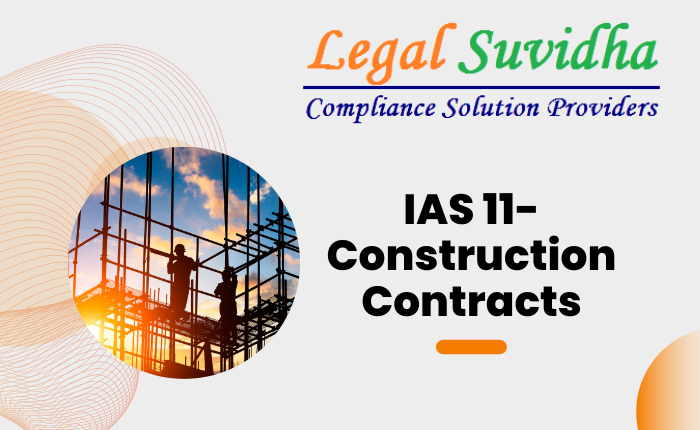International Accounting Standard 11 (IAS 11) stands as a cornerstone in the realm of financial reporting and accounting, specifically addressing the intricate nuances associated with construction contracts. The principal aim of IAS 11 is to provide a meticulous set of guidelines that govern the accounting treatment of both revenue and costs linked with construction contracts. These contracts, often intricate and multi-faceted, demand a specialized approach to ensure transparency, accuracy, and consistency in financial reporting.
Defining the Construction Contract:
A construction contract, as meticulously delineated by IAS 11, is not just a mere contractual agreement; rather, it is a meticulously negotiated agreement forged with the explicit purpose of erecting an asset or a cluster of interrelated assets. This definition goes beyond the customary notion of a contract, recognizing the unique characteristics of construction projects that require distinct accounting considerations.
Segmentation and Unification:
- IAS 11 places significant importance on the segregation and aggregation of construction projects.
- If a contract encapsulates multiple assets, the standard articulates distinct circumstances under which each asset’s construction must be accounted for separately.
- These criteria encompass the submission of separate proposals for each asset, distinct negotiation of contract segments pertaining to each asset, and the feasibility of quantifying the costs and revenues tied to each individual asset.
- Should these prerequisites be unmet, the contract should be holistically treated as a unified entity.
- Similarly, IAS 11 stipulates that when two or more contracts are collectively negotiated and entail interconnected tasks, they are to be regarded as a single contract—a testament to the standard’s nuanced approach to project categorization.
Contract Revenue and Costs: A Multifaceted Framework:
- IAS 11 introduces a comprehensive paradigm for defining contract revenue and costs.
- Contract revenue not only encompasses the agreed-upon sum from the initial contract, but it extends to encompass revenue derived from modifications to the original contract, claims, and incentive payments.
- Notably, these claims and incentives must satisfy the dual criteria of being anticipatable for collection and reliably measurable.
- On the other side of the spectrum, contract costs span various categories: direct costs tied to the specific contract, costs attributed to the contractor’s general contracting activity (subject to reasonable allocation), and other costs that can be specifically charged to the customer as per the contractual terms.
Navigating the Accounting Landscape:
- IAS 11 introduces a significant breakthrough in accounting methodologies—the percentage of completion method. This approach mandates the recognition of revenue and costs proportionally based on the stage of contract completion.
- However, this method hinges on the capacity to accurately estimate contract outcomes. This involves not only estimating total contract revenue but also assessing the completion stage and projecting costs required to finalize the contract.
- Conversely, if estimations prove elusive, IAS 11 prescribes a judicious approach: refraining from recognizing profits and limiting the recognition of contract revenue solely to the extent of recoverable costs, with costs expensed as they are incurred.
Complexities in Estimation:
The determination of the stage of contract completion underscores the dynamic nature of construction projects. IAS 11 acknowledges the multifaceted methods that can be employed, including appraising the proportion of costs accrued for work executed to date relative to the projected total costs, conducting systematic work evaluations, or achieving physical completion milestones.
Mitigating Expected Losses:
IAS 11 instills the importance of prudent financial reporting by mandating the recognition of anticipated losses on construction contracts as soon as they attain a level of probability. This proactive approach aligns with the standard’s overarching goal of ensuring transparency and accuracy in financial disclosures.
Transparency through Disclosure:
The transparency ethos perpetuated by IAS 11 is reflected in its disclosure requirements. Entities are mandated to disclose a comprehensive range of information, including recognized contract revenue, the methodological underpinnings for revenue determination and stage of completion assessment, and explicit details for contracts in progress at the balance sheet date.
Presentation for Clarity:
IAS 11 extends its reach to the presentation realm as well. The standard necessitates that the gross amount owed by customers for contract work be portrayed as an asset—an acknowledgment of the economic value embedded in these ongoing projects. On the flip side, the gross amount due to customers for contract work should be manifest as a liability—a testament to IAS 11’s commitment to portraying financial positions with utmost accuracy.
Conclusion:
International Accounting Standard 11 (IAS 11) is a set of rules that helps companies in the construction industry report their finances accurately. It covers everything from how contracts are set up to when money is earned and spent. This standard is really important because it helps construction companies handle their finances well, be clear about their earnings, costs, and losses, and make smart financial decisions. It’s like a guide that construction companies use to make sure their financial reports make sense all around the world.
If You have any queries then connect with us at [email protected] or [email protected] & contact us & stay updated with our latest blogs & articles








